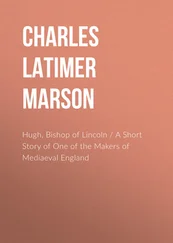Paul Vinogradoff - Villainage in England - Essays in English Mediaeval History
Здесь есть возможность читать онлайн «Paul Vinogradoff - Villainage in England - Essays in English Mediaeval History» — ознакомительный отрывок электронной книги совершенно бесплатно, а после прочтения отрывка купить полную версию. В некоторых случаях можно слушать аудио, скачать через торрент в формате fb2 и присутствует краткое содержание. Жанр: foreign_prose, Юриспруденция, История, foreign_edu, foreign_antique, на английском языке. Описание произведения, (предисловие) а так же отзывы посетителей доступны на портале библиотеки ЛибКат.
- Название:Villainage in England: Essays in English Mediaeval History
- Автор:
- Жанр:
- Год:неизвестен
- ISBN:нет данных
- Рейтинг книги:4 / 5. Голосов: 1
-
Избранное:Добавить в избранное
- Отзывы:
-
Ваша оценка:
- 80
- 1
- 2
- 3
- 4
- 5
Villainage in England: Essays in English Mediaeval History: краткое содержание, описание и аннотация
Предлагаем к чтению аннотацию, описание, краткое содержание или предисловие (зависит от того, что написал сам автор книги «Villainage in England: Essays in English Mediaeval History»). Если вы не нашли необходимую информацию о книге — напишите в комментариях, мы постараемся отыскать её.
Villainage in England: Essays in English Mediaeval History — читать онлайн ознакомительный отрывок
Ниже представлен текст книги, разбитый по страницам. Система сохранения места последней прочитанной страницы, позволяет с удобством читать онлайн бесплатно книгу «Villainage in England: Essays in English Mediaeval History», без необходимости каждый раз заново искать на чём Вы остановились. Поставьте закладку, и сможете в любой момент перейти на страницу, на которой закончили чтение.
Интервал:
Закладка:
The expression 'regardant' never occurs in the pleadings at all, but 'regardant to a manor' is used often. From Edward III's time it is used quite as a matter of course in the formula of the 'exceptio' or special plea of villainage 45 45 For instance, Liber Assisarum, ann. 44, pl. 4 (f. 283): 'Quil fuit son villein et il seisi de luy come de son villein come regardant a son maneir de B. en la Counte de Dorset.'
. That is, if the defendant pleaded in bar of an action that the plaintiff was his bondman he generally said, I am not bound to answer A, because he is my villain and I am seised of him as of my villain as regardant to my manor of C. Of course there are other cases when the term is employed, but the plea in bar is by far the most common one and may stand for a test. This manner of pleading is only coming gradually into use in the fourteenth century, and we actually see how it is taking shape and spreading. As a rule the Year Books of Edward I's time have not got it. The defendant puts in his plea unqualified. 'He ought not to be answered because he is our villain' (Y.B. 21/22 Edward I, p. 166, ed. Horwood). There is a case in 1313 when a preliminary skirmish between the counsel on either side took place as to the sufficiency of the defendant's plea in bar, the plaintiff contending that it was not precise enough. Here, if any where, we should expect the term ' regardant ,' but it is not forthcoming 46 46 Y.B. Hil. 5 Edw. II: 'Iohan de Rose port son [ne] vexes vers Labbe de Seint Bennet de Holme, et il counta qil luy travaille, etc., e luy demande.' Migg. : 'defent tort et force, ou et quant il devera et dit qil fuist le vilein Labbe, per qi il ne deveroit estre resceve.' Devom. : 'il covient qe vous disez plus qe vous estes seisi, ut supra,' etc. Migg. : 'il est nostre vileyn, et nous seisi de luy come de nostre vileyn.' Ber. : 'Coment seisi come,' etc.? Migg. : 'de luy et de ces auncestres come de nos vileynes, en fesant de luy nostre provost en prenant de luy rechate de char et de saunk et redemption pur fille et fitz marier de luy et de ces auncestres et a tailler haut et bas a nostre volente, prest,' etc. (Les reports des cases del Roy Edward le II. London, 1678; f. 157.)
. What is more, and what ought to have prevented any mistake, the official records of trials on the Plea Rolls up to Edward II always use the plain assertion, 'villanus … et tenet in villenagio 47 47 I do not think it ever came into any one's mind to look at the Plea Rolls in this matter. Even Hargrave, when preparing his famous argument in Somersett's case, carried his search no further than the Year Books then in print. And in consequence he just missed the true solution. He says (Howell's State Trials, xx. 42, 43),'As to the villeins in gross the cases relative to them are very few; and I am inclined to think that there never was any great number of them in England.... However, after a long search, I do find places in the Year Books where the form of alledging villenage in gross is expressed, not in full terms, but in a general way; and in all the cases I have yet seen, the villenage is alledged in the ancestors of the person against whom it was pleaded.' And he quotes 1 Edw. II, 4; 5 Edw. II, 157 (corr. for 15); 7 Edw. II, 242, and 11 Edw. II, 344. But all these cases are of Edward II's time, and instead of being exceptional give the normal form of pleading as it was used up to the second quarter of the fourteenth century. They looked exceptional to Hargrave only because he restricted his search to the later Year Books, and did not take up the Plea Rolls. By admitting the cases quoted to indicate villainage in gross, he in fact admitted that there were only villains in gross before 1350 or thereabouts, or rather that all villains were alike before this time, and no such thing as the difference between in gross and regardant existed. I give in App. I the report of the interesting case quoted from 1 Edw. II.
.' The practice of naming the manor to which a villain belonged begins however to come in during the reign of Edward II, and the terminology is by no means settled at the outset; expressions are often used as equivalent to 'regardant' which could hardly have misled later antiquaries as to the meaning of the qualification 48 48 Y.B. 32/33 Edw. I (Horwood), p. 57: 'Quant un home est seisi de son vilein, issi qil est reseant dans son vilenage.' Fitzherbert, Abr. Vill. 3 (39 Edw. III): '… villeins sunt appendant as maners qe sount auncien demesne.' On the other hand, 'regardant' is used quite independently of villainage. Y.B. 12/13 Edw. III (Pike), p. 133: 'come services regardaunts al manoir de H.'
. In a case of 1322, for instance, we have 'within the manor' where we should expect to find 'regardant to the manor 49 49 Y.B. Hil. 14 Edw. II, f. 417: 'R. est bailli … del manoir de Clifton … deins quel manoir cesti J. est villein.'
.' This would be very nearly equivalent to the Latin formula adopted by the Plea Rolls, which is simply ut de manerio 50 50 See App. I and II.
. Every now and then cases occur which gradually settle the terminology, because the weight of legal argumentation in them is made to turn on the fact that a particular person was connected with a particular manor and not with another. A case from 1317 is well in point. B.P. the defendant excepts against the plaintiff T.A. on the ground of villainage ( qil est nostre vileyn , and nothing else). The plaintiff replies that he was enfranchised by being suffered to plead in an assize of mort d'ancestor against B.P.'s grandmother. By this the defendant's counsel is driven to maintain that his client's right against T.A. descended not from his grandmother but from his grandfather, who was seised of the manor of H. to which T.A. belonged as a villain 51 51 Y.B. Trin. 9 Edw. II, f. 294: 'Le manoir de H. fuit en ascun temps en la seisine Hubert nostre ael, a quel manoir cest vileyn est regardant.'
. The connexion with the manor is adduced to show from what quarter the right to the villain had descended, and, of course, implies nothing as to any peculiarity of this villain's status, or as to the kind of title, the mode of acquiring rights, upon which the lord relies—it was ground common to both parties that if the lord had any rights at all he acquired them by inheritance.
Prior of the Hospitalers v. Thomas Barentyn and Ralph Crips.
Another case seems even more interesting. It dates from 1355, that is from a time when the usual terminology had already become fixed. It arose under that celebrated Statute of Labourers which played such a prominent part in the social history of the fourteenth century. One of the difficulties in working the statute came from the fact that it had to recognise two different sets of relations between the employer and the workman. The statute dealt with the contract between master and servant, but it did not do away with the dependence of the villain on the lord, and in case of conflict it gave precedence to this latter claim; a lord had the right to withdraw his villain from a stranger's service. Such cross influences could not but occasion a great deal of confusion, and our case gives a good instance of it. Thomas Barentyn has reclaimed Ralph Crips from the service of the Prior of the Hospitalers, and the employer sues in consequence both his former servant and Barentyn. This last answers, that the servant in question is his villain regardant to the manor of C. The plaintiff's counsel maintains that he could not have been regardant to the manor, as he was going about at large at his free will and as a free man; for this reason A. the former owner of the manor was never seised of him, and not being seised could not transfer the seisin to the present owner, although he transferred the manor. For the defendant it is pleaded, that going about freely is no enfranchisement, that by the gift of the manor every right connected with the manor was also conferred and that consequently the new lord could at any moment lay hands on his man, as the former lord could have done in his time. Ultimately the plaintiff offers to join issue on the question, whether the servant had been a villain regardant to the manor of C. or not. The defendant asserts, rather late in the day, that even if the person in question was not a villain regardant to the manor of C. the mere fact of his being a villain in gross would entitle his lord to call him away. This attempt to start on a new line is not allowed by the Court because the claim had originally been traversed on the ground of the connexion with the manor 52 52 Y.B. Trin. 29 Edw. III, f. 41. For the report of this case and the corresponding entry in the Common Pleas Roll, see Appendix II.
.
Интервал:
Закладка:
Похожие книги на «Villainage in England: Essays in English Mediaeval History»
Представляем Вашему вниманию похожие книги на «Villainage in England: Essays in English Mediaeval History» списком для выбора. Мы отобрали схожую по названию и смыслу литературу в надежде предоставить читателям больше вариантов отыскать новые, интересные, ещё непрочитанные произведения.
Обсуждение, отзывы о книге «Villainage in England: Essays in English Mediaeval History» и просто собственные мнения читателей. Оставьте ваши комментарии, напишите, что Вы думаете о произведении, его смысле или главных героях. Укажите что конкретно понравилось, а что нет, и почему Вы так считаете.












